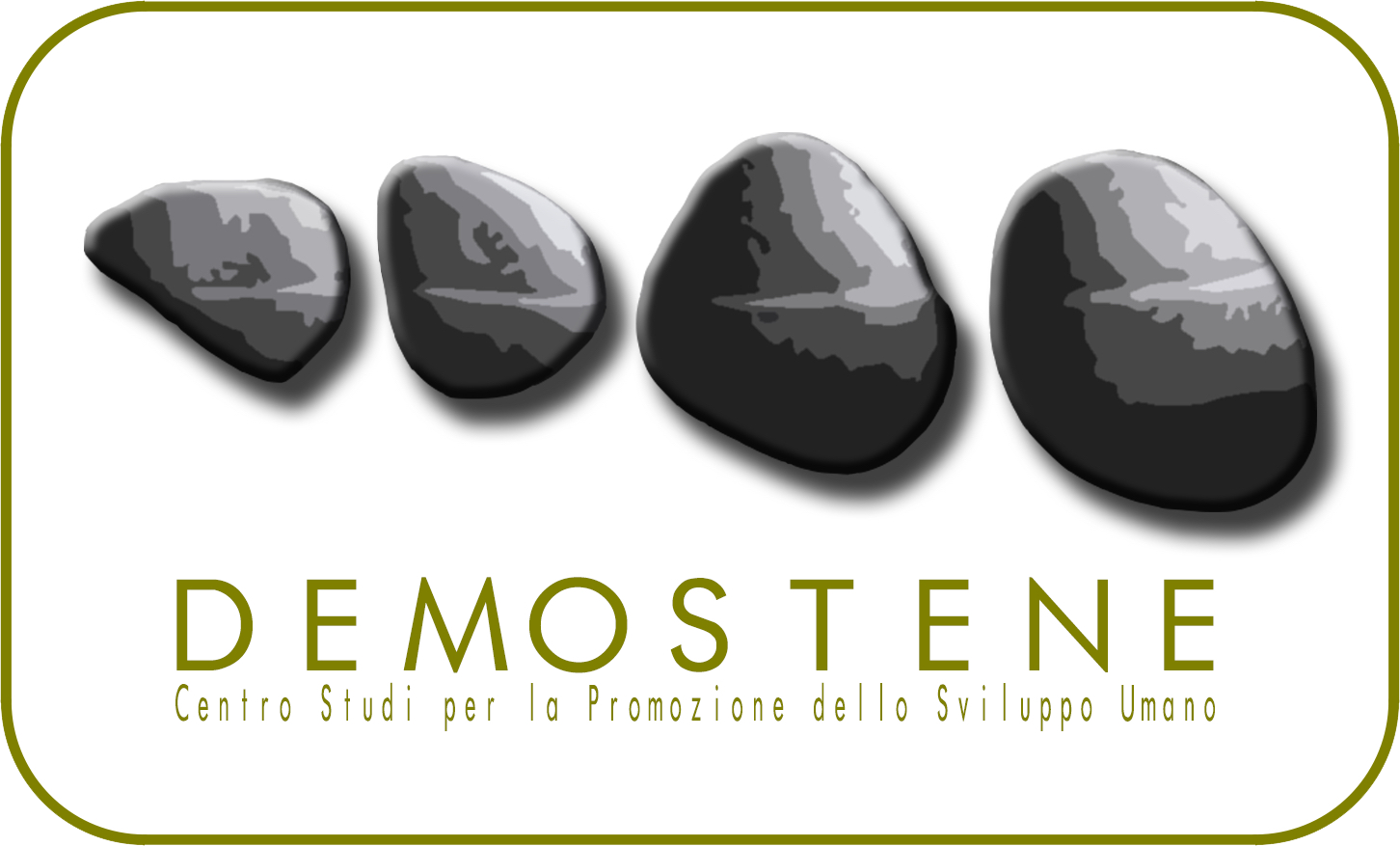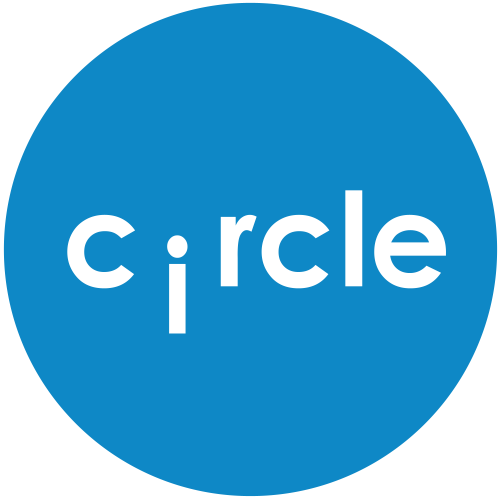Watch the MORE Webinars!
 Digital Skills for rural woman entrepreneurship. Bridging the digital divide
Digital Skills for rural woman entrepreneurship. Bridging the digital divide
Digital skills are an essential qualification for entrepreneurship. For this reason, this module takes a look at the most basic ICT tools that will allow you to manage your Internet presence, as well as to navigate safely. Additionally, you will be introduced to possible solutions for the most common problems you may face while operating a computer, and you will learn how to find solutions to your problems independently, and finding your own resources, according to your needs.
 Work-life balance and the social rights of women
Work-life balance and the social rights of women
In this module we will understand what work-life balance is and why it is important especially for women who very often bear the most part of the domestic and family care responsibilities, mostly due to a stereotyped concept of their role in the society. We will see how a fairer distribution of these responsibilities among several social stakeholders is essential to prevent women from having to choose between family and work. We will also see which are the social rights of women meant to facilitate their participation in the labor market and we will discover what are the strategies and practices that can be adopted for a better reconciliation of work with other aspects of life.
 DigComp 2.2
DigComp 2.2
This module introduces and describes the European Digital Competence Framework for People, known as DigComp. It analyses its history, its structure, and goes into detail of the last published version, the DigComp 2.2, published in March 2022.
 Access to Funding
Access to Funding
This module analyses access to funding for women’s businesses, including: micro credits private loans EU structural funds principles EU Next Generation funds for COVID-19 recovery
 GreenComp: the European sustainability competence framework
GreenComp: the European sustainability competence framework
This module describes and analyses GreenComp, the European sustainability competence framework. GreenComp specifies a set of sustainable competencies to feed into educational programs. Here we will look at its structure and its possible areas of implementation.
 Cooperative entrepreneurship as a means for development and women empowerment in rural areas
Cooperative entrepreneurship as a means for development and women empowerment in rural areas
This module is an introduction to the basics of cooperative entrepreneurship. It will help you get a broader view on what cooperatives are, how they work and how they can support women and rural development. The first two units are dedicated to the more ‘theoretical’ aspects of cooperative characteristics and cooperative governance, while the third unit provides 3 real-life examples of successful women-led cooperatives in rural areas from EU countries and a small step-by-step guide on how to set up a cooperative. A simple template which can be used either as a worksheet for self-study or pre-filled by the trainer will support you identify the formal requirements to consider when setting up a cooperative in your country.
 Self-Esteem and Motivation for Social, Personal and Labour Enhancement
Self-Esteem and Motivation for Social, Personal and Labour Enhancement
Self-esteem and motivation are concepts that we know about but that we often do not work on, especially women in rural areas whose time is very valuable and there are many tasks and roles they assume. For this reason, this module focuses on the work of improving self-esteem and motivation by providing practical exercises and tips that you can include in your day to day to ensure that you spend time taking care of yourself.
 Towards a Green Economy: Entrepreneurship opportunities in rural areas.
Towards a Green Economy: Entrepreneurship opportunities in rural areas.
The green economy is presented as an economic model consistent with the social, environmental and economic objectives facing our society today. Among its many benefits are social equity and efficient resource consumption, both of which are compatible with economic growth. Therefore, this module focuses on the concept of green economy, providing information about green jobs, green economy trends, green entrepreneurship and good practices of women entrepreneurs in rural areas committed to green economy principles.
 Entrepreneurship
Entrepreneurship
This training module about entrepreneurship will tackle the following topics: Definition of the idea and design of the business model (CANVAS Triple Balance, new economies and SDGs, social entrepreneurship) Knowledge of the market and clientele: PESTEL analysis and market study. Competition vs collaboration. Building a support network. Product and service design and validation: design thinking, design sprint, market test, solution interviews. Economic viability. Investments, fixed expenses, and variable expenses. How do I estimate the price of my services or products? Estimating the investment of my business and my break-even point, can my activity be profitable? (economic and financial plan)
 International Business
International Business
Local markets (either regional or national) provide an excellent starting point for a business. At some point though, further expansion of the business needs to be looked at outside of a country’s borders. The module focus on how to take advantage of such opportunities and the process of expanding outside of one’s home borders.
 Anna’s Popiel Farm success
Anna’s Popiel Farm success
Anna Popiel is 42, full of energy and enthusiasm with an experience of work on her parents' farm. For 20 years, together with her husband Artur, she has been running a farm of 45 hectares with a long family tradition in Kapałów, Konecki County, Świętokrzyskie Province.
The structure of sowing and cultivation is mainly maize and grassland. The main direction of production on the farm is dairy farming. The farm is fully mechanized, has modern machinery and buildings adapted to the direction of production, which is milk production. The basic herd consists of 60 heads, including 35 milking heads, from which about 300,000 liters of milk are obtained annually. The recipient of the milk is the District Dairy Cooperative in Końskie in the Świętokrzyskie Voivodeship, specializing in the production of dairy products.
Thanks to the ongoing modernization, the farm is systematically developing to increase the production and the efficiency of the farm.
Anna Popiel is actively involved in projects organized by local authorities and in the life of local society, she is socially active. For 9 years, she has been the mayor of Kapałów and the deputy chairman of the Rural Housewives' Association of Kapałów - Radoska.
She fulfills the functions entrusted to her very well. As part of social work, she is the organizer and co-organizer of many interesting projects, events, actions aimed primarily at integrating the local community, charity campaigns, cultural events, local celebrations, church celebrations, among others organization of trips to the cinema, harvest festivals for residents of the Kapałów village, municipal and district harvest festivals, family festivals under the slogan "Radoszyczanie Dzieciom", school aerobics, "remnants", maintaining the long-standing tradition of "dedicating fields", i.e. organizing an annual Holy Mass in outdoors, in Kapałów, celebrated by a priest with the participation of residents.
 “Precious Plastic Salento”: a female led social enterprise in the field of plastic recycling
“Precious Plastic Salento”: a female led social enterprise in the field of plastic recycling
"Precious Plastic Salento" is both a social project and a female-led entrepreneurial initiative in the field of artisanal plastic recycling located in Lecce, main city of Salento region. In other words, using medium-sized machinery, the team made up by three young women produce objects, furnitures, and jewellery in recycled plastic with the intention of launching an e-commerce soon. In addition to the commercial aspect linked to the production and sale of these products, they offer a series of educational workshops especially for school students on the topics of sustainable development and environmental education, which have gained success and interest. This case can be considered as a success story in an economic sector, such as manufacturing, that still sees a low presence of women, especially in the rural areas of southern Italy. It is interesting to point out that none of the three women involved in this project had any specialised technical education related to plastic recycling. However, starting from the entrepreneurial idea, they were able to independently build up the know-how needed to start a plastic recycling business. This aspect is of particular interest as it shows how the female entrepreneurial attitude, especially if properly stimulated, can overcome the initial lack of specific competences and skills relevant for the business idea.
 RURITAGE Heritage for Rural Regeneration
RURITAGE Heritage for Rural Regeneration
This project seeks to promote sustainable development through the improvement of the cultural and natural heritage of rural areas. The main objective is rural regeneration, for this, its actions are focused on the development and transfer of skills and abilities, in a community context where the different actors and local communities are involved in a participatory process and heritage management. Likewise, new forms of collaboration are favoured where the development of capacities and the mutual learning approach between the reference models are promoted. This four-year project identifies six systematic areas of innovation as paradigms for heritage-based regeneration strategies: pilgrimage, local foods, migration, arts and festivals, resilience, and landscape. The activities and actions that are carried out are aimed at obtaining as a result a set of tools and services for rural communities to promote regeneration strategies led by heritage. Among the results obtained throughout the project are:
● The creation of an interactive web page that is built on the basis of an atlas of territories resulting from the interactions between people and the landscape (RURITAGE Atlas).
● A descriptive set of good practices and innovative solutions for rural regeneration (RURITAGE Replicator Tool Box & My Cult-Rural Toolkit).
● Wide selection of tools to promote change and collect responses from rural communities (RURITAGE Serious Games kit, DSS, Regeneration Guidelines).
● Encourage the interaction of people with their rural landscape (RURITAGE Troubadour).
 Erasmus+ project: Female Rural Enterprise Empowerment
Erasmus+ project: Female Rural Enterprise Empowerment
The objective of this project was to assist women entrepreneurs from rural areas in the 5 partner countries (Iceland, UK, Lithuania, Croatia and Bulgaria) to become successful entrepreneurs with a focus on small business development.
Based on their knowledge and expertise of the needs of women in their countries, partners worked with groups from already defined rural areas close to them. The projects consortium has developed several outputs starting with extensive research across all partner countries, including focus groups, desk research and online surveys. An online training programme has been developed, available on the training website www.ruralwomeninbusiness.eu. The platform focus is on hard skills modules and interactive soft skills modules, supported by the development of Virtual Enterprise Circles™ which will be developed based on an existing methodology from Inova in the UK.
A Facilitators Guide for Enterprise Circles was produced, providing guidelines for the trainers and how they can deliver the methodology in the best way. Also, a Guide for Policy Makers has been produced, where recommendations regarding support for women in rural areas will be outlined.
Dissemination activity in the project was extensive, where social media was utilized, a project website developed along with more traditional materials such as postcards. Multiplier Events were included, called Spread the Word Dissemination groups. A final conference was held on the 17th of April in Sauðárkrókur, Iceland, where the projects results were introduced and where rural women entrepreneurs came together and made valuable contact.
 “Crăița Merelor” – How to turn a family business into a successful brand
“Crăița Merelor” – How to turn a family business into a successful brand
This is the story of Corina Oprea and her sister Alina, two young entrepreneurs with a corporate professional background, who, in less than two years, as co-owners of an apple orchard in Voinești, they have turned a 60 years-old family business into a nationally-know brand - “Crăița Merelor” (“The Apples’ Princess” - an approximate translation). Apart from apple production, they offer 100% natural high quality apple juice, but also a premim accommodation unit - Craita Merelor "The PLACE", just 10 minutes of walking away from the orchard, and organize amazing activities such as 'Apple Picking Events', Special Events Photography, Picnics or Brunches in the Orchard and Yoga and Femininity Retreats. The whole family is involved, but the two sisters are the ‘creatives’: they take care of the brand’s visibility, social media presence, event organization, online deliveries, customer support, creation of new products. According to Corina, the main success factors were their corporate professional experience, and knowledge of marketing, sales, web-design and branding, communication, time and project management, finance, accounting, social media management, graphic editing and much more, but especially passion and determination. As main difficulties, they mention finding appropriate workforce, new markets, and high initial investments, because agribusinesses take time to develop and start becoming profitable. The feedback from clients is highly positive and motivating, the demand is growing, so they aim for diversification and development in the following years.
 Laszki Ranch
Laszki Ranch
Laszki is a town in the Białystok poviat where you can find the Laszki Ranch founded by Emilia Korolczuk. He mainly breeds goats and produces cheese from goat's milk. All activity is documented on her farm Facebook page. The hostess's schedule is very tight. He must combine childcare and daily rites for animals:
“We get up very early to deal with everything. Milking goats, cows and sheep takes a lot of time. You have to work on the cheeses later. At 12 am I greet the first people who made an appointment to visit the farm. I spend an hour on the tour. I'm back to making cheese. At 14 more people come. If the visit is extended, it will be unfortunately at the expense of my lunch”.
Emilia Korolczuk was awarded for winning the title of "Personality of the Year 2019" in the category "Charity and social activity in the Białystok poviat"
 SALENTO KM0
SALENTO KM0
Salento Km0 is an association based in the province of Lecce with the objective of building a solidarity economy network based on the respect for the ecosystem, the production of healthy, fair and good food and the short supply chains. The association promotes the meeting of farmers and has set up a network of more than 50 local organizations including agricultural cooperatives and associations active in the area of rural regeneration. All the adhering organizations share a 'manifesto for natural agriculture in Salento' resulting from a participatory process that expresses a series of cardinal principles in the way of farming, among them:
Practising natural agriculture that rejects the use of chemicals and GMOs;
Assuring product quality and traceability;
Enhancing and preserving the landscape, local resources, identities and cultures, transmitting those values into the products;
Promote the development of a civil, ethical and sustainable economy that ensures social inclusion and respect for workers' rights;
Improve the environmental, economic and social conditions of the territory;
It should be emphasised that the female presence both within the Salento Km0 association and within the network is very high and, above all, they assume role of entrepreneurs even though they work as farmers as well.
 Dona/Home Rurals
Dona/Home Rurals
In Lleida (Cataluña, Spain) good practices are carried out to reduce the gender gap in rural or isolated areas. Among the objectives set is the reduction of the imbalance between women and men, as well as combating job segregation. For this, a comprehensive intervention program is defined that includes training aimed at women. This training includes:
● Courses and conferences on environmental education in agriculture.
● Courses on the competitiveness of tourism companies managed by women.
● Courses on commercial and legal knowledge to promote female entrepreneurship.
● The use of ICT by women has been promoted through online training.
● Face-to-face computer and Internet courses.
● Creation of an online space to improve access to training through ICT, this is divided into three blocks: training, information and communication.
● Training in fruit and vegetable production, aimed at both technical personnel and unqualified personnel, using a mixed, face-to-face and virtual methodology.
● Training in electronic commerce techniques through the creation of a virtual store.
 Erasmus+ project: Rural Women to Sustainable Food and Farming - Fresh Food from Farm to Table
Erasmus+ project: Rural Women to Sustainable Food and Farming - Fresh Food from Farm to Table
RWSFF targets social inclusion and access to disadvantaged learners, such as rural women, small-scale farmers in less-favoured areas, who feel social exclusion and limited market entry.
The aim of the project is to contribute to rural women’s empowerment by encouraging new trends “Fresh Food Economy” and agricultural entrepreneurship, as well as additional farm-related segments of the rural economy, contributing to generating income and employment, taking into account the adaptability of methods and technologies to meet local conditions in each partner's country.
Main objectives:
• To put in place a sustainable process of empowerment and self-initiative of rural women (involved in agriculture or the agriculture supply chain) which will continue to evolve after the project’s completion.
• To promote the consumption of local and quality food from small producers.
• To share innovative models within rural areas and create a bridge between similar characteristics areas by diffusing project outcomes, learning tools and methods at local, national and international levels.
All the set goals are intertwined and strongly include the creation of conditions and educational materials for adult teaching, with a special focus on women in rural areas.
 Hosman Durabil – From Traditional Baking to Rural Activism
Hosman Durabil – From Traditional Baking to Rural Activism
Hosman Durabil is an independent NGO from Hosman - Sibiu, Romania, a rural initiative aiming to support rural durable development and promote equal opportunities through various activities and projects. For example, starting from January 2021, with the support of Orange Group Foundation and active involvement of A.L.E.G., a non-governmental organization focused on preventing violence and discrimination agains women, Hosman Durabil is coordinating The Digital Center for Women from Valea Hârtibaciului – a project aiming to ensure access to technology and information for 230 vulnerable women (Centrul Digital pentru Femei din Valea Hârtibaciului). Complementary to ICT courses, women from Valea Hârtibaciului rural area will benefit from specialized trainings (traditional seed production, ecotourism, gastronomical tourism), realized in partnership with specialized organizations such as EcoRuralis, as well as digital photography and artistic activities through a series of workshops. To further support rural development in southern Transylvania, Hosman Durabil created a brand (“From Hârtibaciu, with love”) under which local producers, including women, can sell their traditional goods and an interactive map of local producers. They are also the creators of “The Cultural Barn”, a training center arranged into the barn building of the old traditional mill of Hosman. Until January 2021, a traditional bakery functioned into another building of the old mill – currently being transformed into a community bakery and backing workshops.
 Eryka Nawrocka – famer influencer
Eryka Nawrocka – famer influencer
Eryka Nawrocka breaks the stereotypes about young farmers. He records videos on TikTok, in which he reports on the life of modern women in the countryside. Curious Internet users ask her why she chose this lifestyle, and she scrupulously answers them. - Sometimes I feel like an extinct genre under strict protection - he declares on one of the recordings.
Yoga and agriculture are two hobbies of Eryka Nawrocka.
On the other hand, Eryka Nawrocka is active not only on Facebook, but also on Instagram and TikTok. Her YouTube channel is devoted to her second passion - yoga.
Eryka said: “In Poland, unfortunately, the stereotype of an unattractive woman who works in agriculture has become established. That is why I record videos in make-up so that you understand that women can be beautiful also in the countryside. I think so after numerous comments: "Farmer? And so beautiful" .... As if both were mutually exclusive. Sometimes I feel like an extinct species under strict protection. The grandmothers from the countryside are great, and so are the grandmothers from the city. All women are great and no matter what they do, she pointed out”.
For several years she has been running a farm, passed down in her family from generation to generation. As she emphasizes, no one forced her to continue the family tradition, but the love for land, countryside and agriculture instilled by her parents did its job. Her positive energy and passion helped win many fans on social media, and this allows her to fight the stereotype of an uneducated farmer, deprived of additional interests, on a daily basis.
 Agribusiness Rosalia D’Ilio
Agribusiness Rosalia D’Ilio
The company is located in Contrada S. Lucia, and was established in 1981 when Rosalia D'Ilio took over her husband Pasquale's family business, which had been active since the early 1900s, preserving its multi-productive and family character. In 1997, the entrepreneur, taking advantage of market opportunities, expanded the offer, opening an agritourism with 20 covers, today 50, and 12 beds. With funds from the Abruzzo RDP 2007/2013, the farm was equipped with a biomass boiler, which has made it possible to cut energy costs.
Rosalia works on the farm with her daughters Emanuela and Miriam, with the collaboration of her husband Pasquale.
Attention and respect for the environment in every aspect, both in cultivation and breeding techniques and in energy production, combined with the genuineness of the product/service and family management, are the factors that characterise the D'Ilio farm, which has made quality the inspiration behind its philosophy.
Sharing the project between family members has also allowed the company to adapt to the needs and demands of the market, diversifying and expanding its product and service offerings over time.
Thanks to funding from measure 121 'Modernisation of agricultural holdings' of the Abruzzo RDP 2007/2013, the D'Ilio company is energy sustainable: it produces thermal energy from agricultural and forestry biomass produced directly on the farm. With the installation of the boiler, a twofold advantage was achieved, reduction of energy costs and disposal of by-products from pruning.
 Mujer Rural
Mujer Rural
As part of the transnational initiative SIMTEGRA, in Madrid, in response to problems related to depopulation and the economic situation, good practices are carried out to combat all forms of discrimination and inequality that occur in the labor market between men and women. For this, the following actions are carried out:
● Awareness plans are drawn up in educational centres, with students, teachers and the association of mothers and fathers of students, on equal opportunities and vertical gender segregation.
● Positive action plans are developed in the business environment and for women in the work environment on issues such as training, self-employment, reincorporation or insertion and the promotion of associations.
● Plans are drawn up to promote the participation of women in the labour market.
● Guidance is offered for the creation of new work models that reconcile work and family life.
 Erasmus+ Project: WomenPRO
Erasmus+ Project: WomenPRO
Young Women as Social Entrepreneurs, path to better life - WomenPRO project aims to motivate young girls and women leaving in rural areas and remote areas to find employment in their regions by providing them with an integral and holistic training course, tailored to their specific needs. The project focuses on empowering them in order to realize that they can start their own business. The project general objective is to enhance and promote social entrepreneurship spirit among young women by raising awareness and supporting them in evolving their skills in entrepreneurship, creativity and innovation. The main objectives of the project are: Enhance the development of competencies for entrepreneurship of young girls in the project countries, Foster and widen the competencies of EU teaching staff, sharing the possibility to use innovative approach, Develop the innovative approach to competency development in digital age, Contribute to unification of the educational and training standards to recognize the learning outcomes, and also To track the competency development of young people to prepare them to successful entering the labour marker
 An example of women multi-functionality in rural Romania
An example of women multi-functionality in rural Romania
Oana Daniela is the perfect example of multi-functional rural woman. She lives in Girov, Neamt county, she is a mother and a small farm owner. She is also an entrepreneur, coordinating a small company - Kameo-Dominion, which provides authorized translation and writing services. She finds most of her customers online and works from home according to her own schedule, allowing her to take care of the household and animals.
According to Oana, in an exclusive interview for Kleinon ”Usually, women from the countryside are placed in a certain category, assuming that they only take care of the household. However, this is far from true. In recent years, the number of rural women who do more than that has increased.
I, for example, even though I come from the urban environment, I chose to move to the rural one out of the desire to spend more time in the open air and to eat healthier. The move changed my lifestyle, but not from a professional point of view. More precisely, I have a lifestyle similar to that of a person from the countryside, but professionally I am still a person from the city. For example, I have various animals in the household that I always take care of, consisting of goats and chickens, a greenhouse, an orchard, and several acres of lands. The agricultural products resulting from my work are mainly used for my family – but sometimes I produce more than we need so I have several occasional customers too.
Besides this, I take care of the house, I cook and I take my son to school daily. At the same time, I have a satisfying professional life as a translator and a writer. I do ghost writing and translate content from various fields, I create and illustrate children’s books.
Although this lifestyle is often demanding, I always find the dose of energy needed to do the right thing.”
 Entrepreneur Rural Women
Entrepreneur Rural Women
This project aims to promote female entrepreneurship by promoting ecosystems that allow the creation of new opportunities in the rural world. With the intention of reducing the gender gap, promoting sustainability and reducing the depopulation of rural areas, this project raises as a priority, intervening in the field of female entrepreneurship and technology in an attempt to achieve a more efficient, creative economic ecosystem and profitable, as well as inclusion and diversity in this context. Among the actions of the project, the aim is to create a meeting point for women entrepreneurs and business women with the aim of promoting women's business initiatives in rural areas through ICT, promoting digital development, encouraging the involvement of different sectors, and creating physical meeting spaces and virtual dialogues through the creation of rural HUBs. Among the actions of the project are: a diagnosis of female entrepreneurship and the digital gender gap in rural areas, definition of the needs and opportunities of women, creation of co-creation laboratories for the development of HUBs for women entrepreneurs in the delimited rural area, and pilot tests in the different HUBs established in the Andalusian territory.
 Rural 3.0 Service Learning for the Rural Development Aprendizaje-Servicio par el desarrollo rural (RURASL)
Rural 3.0 Service Learning for the Rural Development Aprendizaje-Servicio par el desarrollo rural (RURASL)
The objective of this project is to promote the development of skills and knowledge to promote changes in the rural context. Through innovative learning teachings such as the service-learning teaching methodology, it is intended to stimulate social entrepreneurship of university teaching staff and rural entities through transnational cooperation between higher education institutions and rural partners. Among the expected results of the project are: to obtain an analysis of the needs detected in the beneficiary group in the eight participating countries (Spain, Portugal, Croatia, Germany, Lithuania, the Netherlands, Austria, Italy), practical cases and good practices in cutting-edge technology of rural education in service-learning, a course in service-learning and social entrepreneurship, and meetings between individuals and groups with the aim of sharing and building knowledge based on their experiences (Hubs).
 CultRural+
CultRural+
This project tries to create spaces in the transfer and development of strategic thinking skills and the creation of networks in order to build interrelated communities. To do this, it seeks to bring rural and neo-rural entrepreneurs closer to strategic training, networking, the community of practice and internationalisation. Within the framework of adult education, this project addresses the need for internationalisation, business education, the development of skills and abilities, and the creation of networks in European rural areas to promote sustainable development. Among the actors that are part of the CultRural+ program are universities, rural municipalities and SMEs that work in the search for innovative digital strategies and the construction of knowledge in the area of entrepreneurship for local development in rural areas at risk of depopulation. Among the objectives proposed with the project are:
● Improve the skills and knowledge of adults, especially those entrepreneurs and low-qualified civil servants to enhance their skills and favour their adaptation to changes in the labour market in rural areas.
● Generate local networks for sustainable local development.
● Promote business education and training in strategic thinking for rural entrepreneurs.
● Train mayors and municipal councillors in rural areas in strategic thinking to promote resilience, governance and internationalisation.
● Promote active citizenship and personal development through lifelong learning and coaching.
● Promote integrated tourism as an added value in the creative management of cultural heritage.







